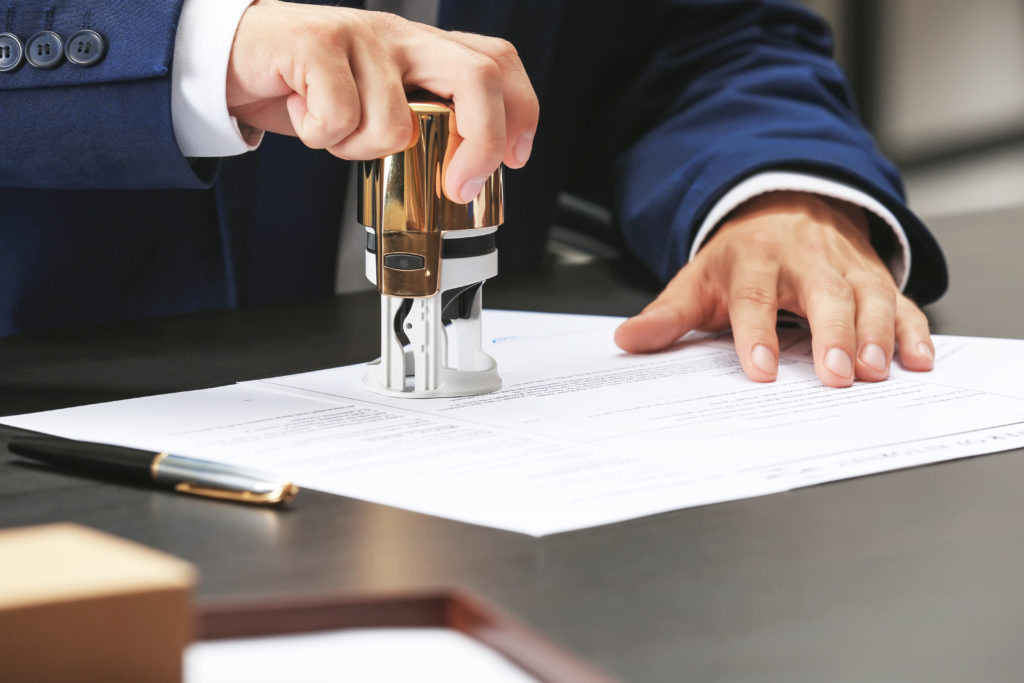Demystifying Notarial Job: Streamlining the Role and Value of Notaries
In the elaborate internet of legal paperwork and verification, notaries stand as columns of guarantee and credibility. Their function, usually shrouded in secret for many, lugs substantial weight in making sure the validity and integrity of important papers. As guardians of legitimacy and reality, notaries play a critical component in our culture, yet their job is not always completely comprehended. By unraveling the intricacies shedding and bordering notarial techniques light on the value of their acts, a clearer understanding arises of the essential duty notaries play in supporting the fabric of legal and contractual arrangements.
The Background of Notarial Job
How did notarial job evolve over time to become an integral part of legal and business purchases? The background of notarial job go back to old civilizations, where scribes played a vital duty in tape-recording important information and validating papers. As cultures advanced, the demand for a much more formalized system to make certain the validity of agreements occurred. This brought about the development of notaries, individuals appointed by the state to serve as objective witnesses in lawful matters.
During the Middle Ages, notaries acquired importance in Europe, with their features expanding to include preparing legal documents, accrediting signatures, and protecting documents. The surge of worldwide profession better emphasized the value of notarial work in verifying contracts and contracts throughout borders.
In the contemporary age, notaries remain to play an essential function in legal and business transactions by verifying identities, confirming the credibility of records, and protecting against fraudulence. Their function in certifying the legitimacy of arrangements includes a layer of protection and depend the ever-evolving landscape of commerce and legislation.

Responsibilities and Responsibilities of Notaries
Notaries play a crucial function in verifying the authenticity of documents and the identification of signatures. One of their main responsibilities is to witness the finalizing of vital papers, such as wills, contracts, and acts, to guarantee that all parties are entering into contracts intentionally and voluntarily.
In addition, notaries are tasked with carrying out vows and affirmations, which are important in lawful proceedings and the implementation of affidavits. They license duplicates of initial records, giving guarantee to establishments that the duplicates hold true replicas of the originals. Notaries should keep exact records of all purchases they look after to make certain transparency and responsibility. On the whole, the tasks and obligations of notaries are important in protecting the stability and legitimacy of various files and transactions.
Notarial Certificates and Signatures
Exemplifying thorough attention to detail, notarial certificates and signatures function as important components in verifying the credibility of legal papers. Notarial certifications generally contain vital info such as the date of registration, the names of the signatories, a summary of the record, and the notary's main seal. These certificates supply a clear record of the notarial act, making certain that the document can be conveniently identified and traced back to the notary that supervised the process.
Signatures play a pivotal function in notarial work, as they indicate the contract and authorization of the celebrations involved. Notaries thoroughly witness the finalizing of records to confirm the identity of the signatures and validate that they are signing of their very own free choice. By affixing their official seal and trademark to the paper, notaries license that the necessary treatments have actually been adhered to and that the record is enforceable and legitimate.
In essence, notarial certifications and signatures are the characteristic of authenticity in legal deals, supplying guarantee to all parties entailed that the documents are legitimate and binding.
Importance of Notarial Acts
Registration Process Discussed
The registration process commonly starts with the individual presenting the file to a notary public. When the identification is validated, the notary makes certain that the specific signing the here are the findings record does so voluntarily and without any type of coercion.

Conclusion

Notarial certifications typically have critical information such as the day of registration, the names of the signatures, a description of the file, and the notary's main seal. These certificates offer a clear document of the notarial act, making sure that the document can be easily determined and mapped back to the notary that looked after the process.
By fastening their main seal and trademark to the record, notaries this hyperlink certify that the needed treatments have actually been followed and that the paper is valid and enforceable.
By verifying the identity of the signatories, validating their determination to enter into the contract, and accrediting the day and area of the finalizing, notaries play an important role in promoting the validity of lawful records.After the record is authorized, the notary will fasten their main seal or stamp onto the paper.